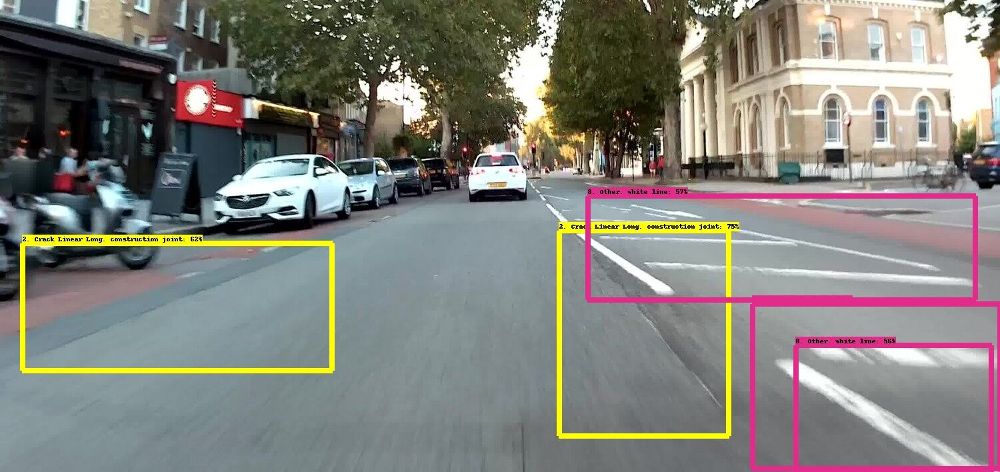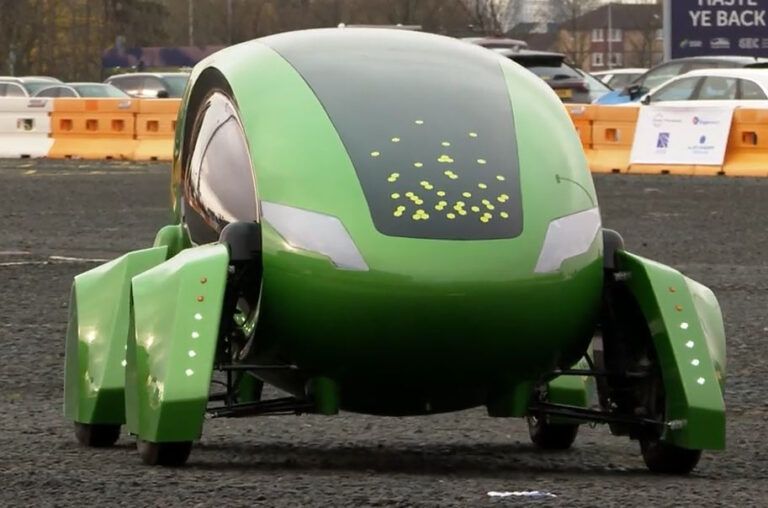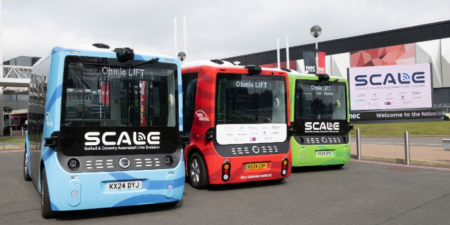Academy of Robotics and Eurovia UK have announced plans for a national partnership to trial the use of Kar-go autonomous delivery vehicles to support urban and rural highway management projects and to accelerate their ‘training’ to navigate on unmarked roads in the UK.
Academy of Robotics is the startup that has developed Kar-go, Europe’s first road-based autonomous delivery vehicle. Originally created to dramatically reduce both the financial and environmental costs of last-mile parcel delivery, Eurovia UK recognised its potential for use in infrastructure and urban development work, and is keen to test the Kar-go technology to automate the delivery of small plant equipment, tools, materials and other components to and from a highway work site, as well as the potential use of data collected by Kar-go to determine the condition of roads. Part of Vinci, the French concessions and construction group, Eurovia UK is a leading specialist in operating, maintaining and improving road, highway and public realm infrastructure. The trial will initially focus on the UK, but as a global business operating in 15 countries, the deal offers significant potential for international expansion in Europe and North America.
The company will help Academy of Robotics to scale their training of autonomous vehicles by accessing digital camera data gathered by Eurovia’s fleet in the UK, which covers over 31,000 miles (50,000km) of roads. Through its unique approach to colour perception, Academy of Robotics has been able to address the challenge of environmental variability and ‘noise’ caused by shadows and bright reflections, meaning that Kar-go’s operating system is already able to understand the difference between road features such as cracks, puddles, potholes and shadows.

The technology the Academy has developed is able to detect not only the potential hazards in the vehicle’s path, such as the edge of a road in snowy conditions, but also the likely causes of deterioration on road surfaces. Reflecting Eurovia UK’s commitment to improving road surface conditions, the collaboration will ultimately offer a proactive, ‘smart’ approach to detection of both highway defects and hazard prevention.
“To date, most autonomous vehicle training and testing has taken place on well-marked roads or specially designated test centres, but these areas rarely reflect the unpredictable elements in real-world conditions,” noted William Sachiti, CEO and co-founder of Academy of Robotics. “The AI can process the data at immense speeds, so one of the biggest challenges holding back this technology is the ability to get hold of enough data on diverse conditions to train vehicles at scale. This partnership and the access to the vast dataset of different road conditions it provides, together with the increased investment we have coming from our latest funding round, will ensure we can test and train our technology on UK roads at an unparalleled scale and pace.”
Eurovia UK’s chief executive, Scott Wardrop, commented, “We were impressed by the sophistication of the technology developed by Academy of Robotics. We have reviewed a number of autonomous vehicle solutions, but a critical component for us in developing this partnership was the technology’s ability to manage the complexity of recognising different road surfaces and their absolute commitment to sustainable innovation.”





